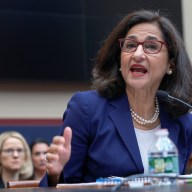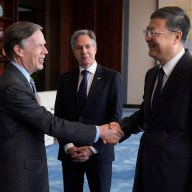Matt Ross is a familiar face. He’s appeared in Martin Scorsese’s “The Aviator,” Whit Stillman’s “The Last Days of Disco” and George Clooney’s “Good Night, and Good Luck.” He’s been on “American Horror Story” and currently plays Gavin Belson on “Silicon Valley.” But over his two decades as an actor, Ross has been hoping to make that old cliche a reality: What he really (or also) wanted to do was direct. (A graduate of Juilliard’s theater program, Ross attended NYU film school briefly, but dropped out, he says, because he ran out of money.) With “Captain Fantastic,” he follows up his tiny 2012 indie “28 Hotel Rooms” with a bigger project: It tells of a man (Viggo Mortensen) who has raised his six kids deep in the woods. When they go on a road trip, their ideals are threatened, most menacingly by the father (Frank Langella) of his newly late wife. But Ross didn’t want it to be a simple paean to alternative living, just as he didn’t want to condemn it either. You’ve worked with some great directors. Were you an actor who would bug them so you could learn their secrets? RELATED: Interview: Viggo Mortensen on “Captain Fantastic” and how acting keeps him youthful You made films since you were a kid, and you’ve made two short films before “28 Hotel Rooms.” Were you hesitant to both direct features and be an actor before? What changed to get you to make “28 Hotel Rooms”? RELATED: Our review of Matt Ross’ “Captain Fantastic” “Captain Fantastic” is a much bigger film than “28 Hotel Rooms.” Explain how you managed the shift. It was only after making this that I realized all this. As an actor you’re completely protected from the realities of filmmaking. You show up at your location, you work and then you leave. You have no idea how to find locations or the cost of building locations. You don’t notice how the day works; you’re not responsible for it. I always say it was hard, but it’s not as hard as picking strawberries along I-5. I’m not going to complain about the great joy I get from making a movie. When the film starts it might be tempting to assume it’s either going to condone what Ben is doing or condemn it. But it winds up being more complex than that.
No, I made a concerted effort not to be that guy. When they hired me as an actor they were hiring me to fulfill a particular job. I would spend all my creative energy trying not to suck and doing my best to fulfill their vision. On longer shoots, like “The Aviator,” there were times I would go to set if I wasn’t working that day and observe and watch. Martin Scorsese is a lovely man, and there were a couple of occasions when I would sit next to him at the monitor. I was watching what his process was like as a director. We wound up talking Russian cinema, and the next day, in my trailer, there were a bunch of films he had mentioned that he had his assistant bring to me. But I have never been on a set where I’m an actor and think, ‘How would I cover this and how are they covering it?’ I’m completely there to do that job.
When I was younger I felt I had nothing to add to the conversation. I realized later that you can reflect on your life even then. When you’re 18 you can write about what it’s like to be 18. I should have been doing that rather than comparing myself to the great artists. A lot of that had to do with feeling inadequate and not being brave enough.
I got to a point in life where you stop comparing yourself to others and follow your own path. I just didn’t care anymore, I guess. One thing that’s good about film schools or theater programs or if you studied literature — they’re safe places to fail. You’re not being published, your work is not seen outside of a closed environment. It’s really healthy. You learn by doing, and you’re in a safe place to do. I didn’t have that as a filmmaker. I just had to be OK to be able to make a lot of bad films at the beginning. And that’s OK. I learned my craft. I wrote for many, many years before. By the time I made “28 Hotel Rooms,” I’d probably written 15 scripts.
It was a big step-up. There were two people in “28 Hotel Rooms.” This has six kids in every scene. You have two stunts, both of which include children. You have two musical numbers, also with children. You’re filming in two states. It’s a road movie, so every day you’re in a new location. Many of those locations are deep in the woods, and it takes a lot of time to get to them. There are child labor laws, which is a great thing. But they can only work so many hours. Just having seven people in a scene is complex; you want to make sure all their lines are on camera. There’s no easy answer.
There are many Americas, and we show three of them. We show rural America, we show suburban America, and we show rich America, as exemplified by golf clubs and gated communities. They each have different parenting styles, different values. I tried to portray everyone as nuanced, complex and flawed human beings, like we all are. It would be a great thing if your alliances shifted a little bit watching it. Sometimes you could see Ben as correct and other times you think he’s irresponsible. You go back and forth. When I talked to Frank Langella, I said, “You’re antagonistic, but you’re not an antagonist.” That would be great if people got to that point in the movie and people argued, “No, he’s right!” “No, he’s right!”
Matt Ross on not making his film ‘Captain Fantastic’ simple
Follow Matt Prigge on Twitter @mattprigge


















